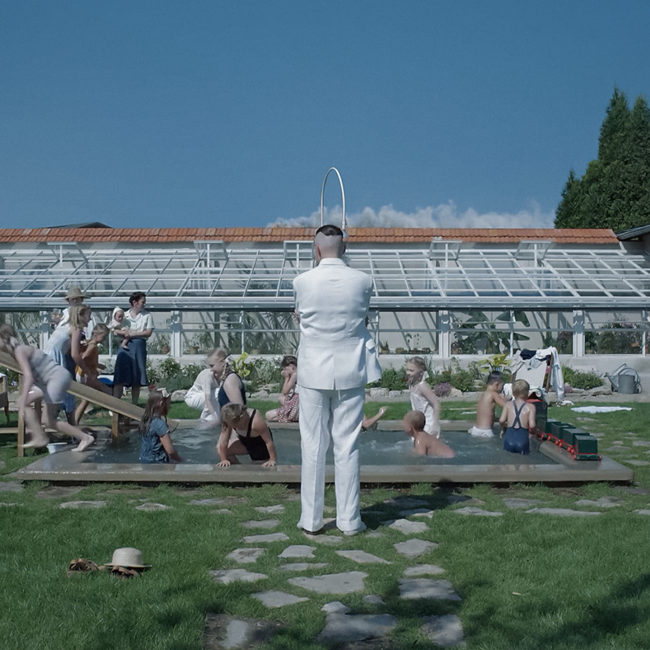
The Bear and what it means to keep going when you lose it all
Opinion + AnalysisRelationshipsSociety + Culture
BY Joseph Earp 1 SEP 2023
Fittingly, for a show set in the brutal, immediate environment of a commercial kitchen, The Bear opens with a brutal, immediate metaphor for grief.
In the opening scene of the show, Carmy (Jeremy Allen White) traverses a bridge in the middle of the night. We know nothing of this man yet. He moves fearfully, slowly. And in a moment, we see why – there’s a vicious bear across from him, reared up and snarling, and Carmy is desperately, fearfully trying to placate it.
Within an episode, the symbolism is obvious. The bridge represents what we will soon come to see as an uncomfortable, dangerous transition Carmy has been thrust into – he has left behind a world of chef superstardom, in order to take over ownership of the middling sandwich shop left to him after the suicide of his brother. And the bear? It is the manifestation of the grief he has been left with; this terrible, unpredictable thing, that he has no idea how to confront, or how to contain.
On its surface, The Bear is about kitchen life. It nails perfectly the stress; the heat; the ugly mechanics of what goes into our food. Anthony Bourdain was right – when you eat out, and get served a dish on a perfectly clean plate, what you haven’t seen is the often literal blood, sweat, and tears that produces it. The Bear spends its two seasons documenting those bodily fluids in sometimes gratuitous detail.
But as its opening scene establishes, what The Bear is really about is untethering. More specifically, the way that grief untethers – the way it throws us back into a world we thought we knew but is now suddenly unfamiliar to us, as we stand under its hot kitchen lights, naked and afraid.
What grief does to us
Carmy is a man with his own dark past. In flashbacks, we see him abused by kitchen bosses. We learn more about Michael, his dead brother, who struggled with addiction. And, drip by drip, we learn about the family dynamics and pressures that made Michael both who he was, and who he died as, and who Carmy once was.

What we also learn is the way that grief can provide a sort of brutal reset of personhood. When we lose someone close to us – whether it be a family member, as in the case of Carmy, or a lover, or a friend – we speak often of losing something of ourselves too.
This cuts to the beauty of human interaction – something that the philosopher Derek Parfit often wrote about. Love, be it familial, platonic, or romantic, erodes the boundaries between the self and other. Our natural inclination as humans to learn about each other, to take on the cares and emotional states of those close to us, to constantly empathise and put ourselves in other’s shoes, makes us less like distinct individual entities, and more like what the philosopher Anette Baier once called “heirs and successors to those that we care about.”
This is beautiful, yes, but it also makes us deeply vulnerable. It means that death and suicide doesn’t just have the power to remove one human being from the world. It means that death and suicide has the power to remove part of us as well.
The philosopher Bryanna Moore has written about this in her paper ‘The Three Moral Dimensions of Grief.’ Moore understands human beings as relationally defined. She takes a sort of refined, tweak “no self” view of personal identity. On her reading, we are not hermetically sealed entities, with some stable, unchanging identity. We are who we are because of who we love, hate, and spend time with.
So for Moore, grief “reveals something vital about the way in which we relate to ourselves around us.” When Carmy loses Michael, he is forced into what Moore calls “a powerful reassessment and reevaluation of the self’s relation to the world.” This explains in great part why Carmy decides to take on Michael’s restaurant. It’s not just guilt that makes him want to help the brother who he could not help in life. It’s that he now no longer knows who he is. He is fresh and untethered. There is a gap, where Michael once was, but there’s also a gap where Carmy once was.
The moral value of grief
Robert C. Soloman, another philosopher who has written extensively about grief, argues in tandem with Moore that grief’s power to untether us makes it, to some extent, “morally excellent.” Soloman starts with the idea that grief is morally obligatory. As in, if someone we care about dies, and we do not grieve, then we have done something immoral – we have failed in some way. Grief is a necessity; it isn’t just some replacement of the love we once felt towards the departed, it is that love, taking on a new form.
For Soloman, the excellence comes from the way that grief represents an “emotional process.” It’s not just a feeling, a discrete emotional state that comes over us. It’s something that builds, grows and changes. This, we quickly find, is true with Carmy. We see him move constantly through different stages and states of grief, at times anger, at other times remorseful; always on the move, and always finding himself plunged into new emotions.
As to what kind of process grief is, it’s one of reconstruction. When we are untethered by loss, we are then forced to get to work on rebuilding ourselves. Grief heightens and sharpens us, makes us present in activities and choices. Carmy finds himself suddenly lit up by chefing in a way that he has not been before, dealing with the chaos of his new restaurant, but immersed in it, and learning new things about himself as a result.
It’s Moore who points out that rebuilding oneself need not always be positive, or moral. After all, there are many people who respond to traumatic events by becoming a new type of person, but a worse one – meaner, angrier, less forgiving. Grief gives us a blank slate, and it’s up to us what we then build on top of that slate.
The goodness of grief, then, comes from the way that it makes us present; intentional. So often we move through life making choices passively; letting things happen to us. When we are left with nothing, and we must rebuild, every choice becomes heightened – we become aware of them, in a way that we were not before.
Grief can wake us up from a stupor, shake us out of immoral patterns that we did not even realise that we had fallen into.
This, we see, happen with Carmy. Slowly, sure. He makes mistakes. He hurts others. He fails. But he is, after his hard reset, aware. Paradoxically – beautifully – a death has made him, quite to his surprise, suddenly and thrillingly alive. In that way, Michael’s passing wasn’t just a loss. It was, against the odds, a gift. And there is beauty in the way that Carmy takes it in his pale, open hands.
Ethics in your inbox.
Get the latest inspiration, intelligence, events & more.
By signing up you agree to our privacy policy
You might be interested in…
Explainer
Society + Culture
Ethics Explainer: Aesthetics
Opinion + Analysis
Relationships
Free speech has failed us
Big thinker
Relationships
Big Thinker: Tyson Yunkaporta
Opinion + Analysis
Society + Culture, Politics + Human Rights




